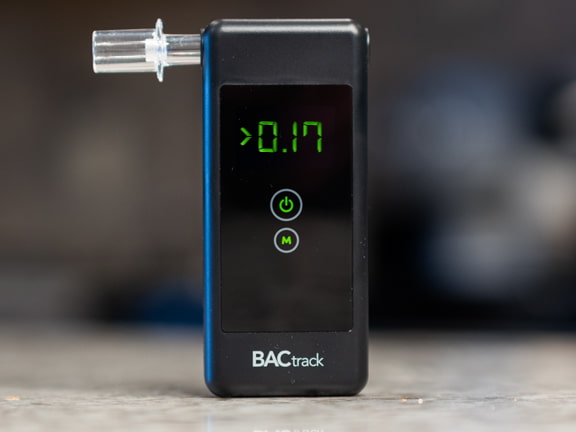OWI Attorney For Super Drunk Charges
Being charged with drunk driving is an extraordinarily stressful experience and often results in life altering legal repercussions. These charges vary depending on circumstances, previous convictions and the amount of alcohol involved. In 2010, Michigan amended its drunk driving statues under MCL 257.625(1)(c) to create a “Super Drunk”, law that enhances penalties for those convicted of operating a motor vehicle with a blood alcohol content (BAC) of .17 or higher. High BAC offense is also a term used to describe this change to the law and is referring to the same thing. These enhanced penalties are applicable even if it is a first offense, and should be taken very seriously.
Having a good attorney is important for individuals facing super drunk charges in Michigan, and can help to ensure the best legal outcome possible. If you need to speak with an attorney, please feel free to reach out today (248) 348-0496
Michigan Super Drunk Laws
 The most serious and gruesome drunk driving accidents are oftentimes caused by drivers who are not just above the legal 0.08 BAC limit, but who are at double and sometimes even triple that. In order to crack down on this and reduce the severity of accidents, Michigan increased its penalties for those who are convicted of drunk driving offenses with an exceptionally high BAC. The change seems to have been effective, as the number of super drunk OWI convictions has been consistently lowering over time since the super drunk law was implemented in 2010.
The most serious and gruesome drunk driving accidents are oftentimes caused by drivers who are not just above the legal 0.08 BAC limit, but who are at double and sometimes even triple that. In order to crack down on this and reduce the severity of accidents, Michigan increased its penalties for those who are convicted of drunk driving offenses with an exceptionally high BAC. The change seems to have been effective, as the number of super drunk OWI convictions has been consistently lowering over time since the super drunk law was implemented in 2010.
The super drunk law carries with it dramatically increased fines and jail time, for both first and repeat offenders. This law in its least serious form applies to offenders who have no prior OWI conviction in the past seven years. For those who have a prior conviction in the past seven years, they face harsher penalties than even a regular super drunk conviction.
The baseline enhanced penalties for a super drunk charge is 45 days without driving privileges, followed up by 320 days of restricted driving with an ignition interlock device (also known as a breathalyzer) installed on the vehicle. Restricted driving only allows the offender to drive in the following circumstances:
- To and from work, or during the course of work as part of their employment
- To and from substance abuse treatment or education programs
- To and from treatment for serious medical conditions
- Two and from probation, community service and school
The fines and jail time are also increased substantially with super drunk convictions, with individuals facing up to 180 days of jail time, and fines ranging from $200 to $700. Offenders are also required to commit up to 360 hours of community service. Exact sentences will depend on the circumstances surrounding the offense, as well as any previous convictions.
Super Drunk Compared to Regular OWI
As mentioned previously, charges for super drunk carry far greater penalties compared to a regular OWI charge. For example, a standard OWI charge carries with it a maximum jail sentence of 93 days. A super drunk OWI charge on the other hand doubles this charge to 180 days. This increase is reflected in other penalties that go along with a jail sentence.
OWI charges in general carry with them a license suspension and restriction for a set period of time. In a regular or standard OWI, the suspension period is 30 days, followed up by 150 days of restricted driving. With a super drunk OWI, the suspension period is increased to 45 days and the restricted driving period is doubled to 320 days. In addition to this, super drunk offenders will be required to have a breath alcohol ignition interlock device (BAIID) installed on their vehicle for the entirety of the restricted driving period.
This means that in total, a first time super drunk offender will struggle with the legal use of their own transportation for an entire year as opposed to just six months for standard OWI offenses. This doubling of the time period can cause a great deal of hardship in an offender’s personal and professional lives due to their driving activities being severely restricted to the absolute essentials.
On top of all of the increase in jail time and driving restrictions, the fines for super drunk OWI charges are increased compared to standard OWI. When an individual is convicted of a standard or regular first time OWI, they are looking at fines between $100 and $500. With a super drunk conviction, fines are increased to a range between $200 and $700. There is also the possibility depending on the circumstances of the offense that the court can order an individual to receive up to a year long alcohol treatment after their conviction.
It should be noted that super drunk charges only apply for individuals who haven’t had any prior OWI offenses in the past seven years. Individuals who have prior offense(s) within the past seven years are instead charged as second or repeat offenders, regardless of their BAC levels. One of the benefits of working with an experienced DUI attorney is that they can help an individual navigate these details to ensure that their consequences are reduced as much as possible.




